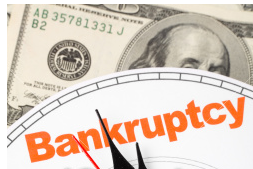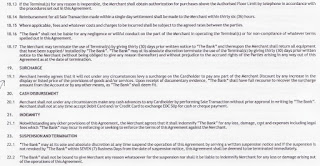According to the Malaysian law, you can become bankrupt when the outstanding sum involved is RM30000 (previously it was RM10000) or more with a default period of six months or more. Defaulting on credit card payment is among one of the ways to be bankrupt.
Among others, being bankrupt, you cannot
• Hold any public office without the approval of the Director-General of Insolvency Malaysia (DGI)
• Pursue and court action without the DGI’s permission
• Leave the country without the court’s or DGI’s permission. The DGI will hold your passport.
• Be a company director or carry out your own business or be involved in the management of a company without the court’s or the DGI’s approval.
• Be involved in the management of a company or be an employee of a company that is owned by your spouse or close relatives and their spouses
• Be a committee member of any registered body.
• Open a bank account without the approval of the DGI
A bankrupt can work but he or she has to leave a certain percentage of his or her income to the DGI to repay debts. A person can be discharged from "bankruptcy" when he or she has settled debts in full.
The sensible way to avoid being bankrupt is to pay your credit card bills fully and promptly every month upon receiving their statements.
The following is an extract from MyPF:
Malaysia Bankruptcy Law Updates
Malaysia’s bankruptcy laws receive an update in March 2017. Here are the key updates.
- The minimum to be declared bankrupt is raised to RM50,000 (from RM30,000).
- Social guarantors can no longer be declared bankrupt. Social guarantors provide guarantees to loans such as educational loans, hire-purchase loans, and housing loans which they are not beneficiaries of.
- Automatic discharge of bankruptcy after three years, subject to good behavior including making payments towards your debt and submitting a full accounting of your monies and properties (previously 5 years and subject to Director General of Insolvency’s approval).
- A debtor may propose a voluntary arrangement to his creditors any time before he is adjudged bankrupt.
- A bankruptcy notice needs to be served personally to a debtor.














